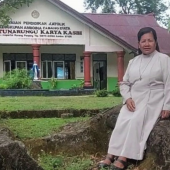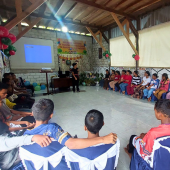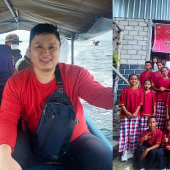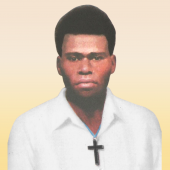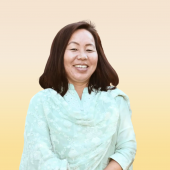Indonesian women dedicate life educating marginalized
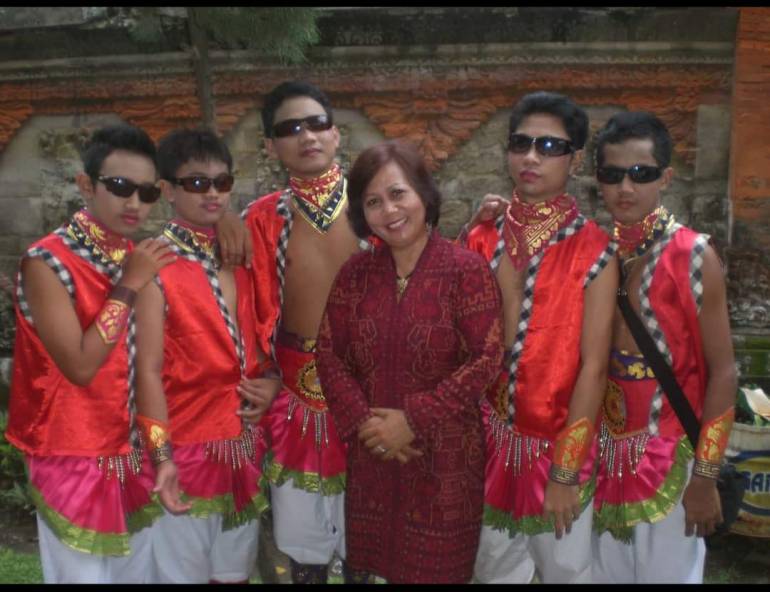
Ida Ayu Pradyani, known as Dayu, first began her career as an employee at a farm in Malang, East Java Province. Graduate from the Udayana University of Bali, she spent 14 years working in Malang before finally, in 2000, she and her family decided to return and settle in Bali.
She began working in community development, empowering women in Bali, where her main task was assisting women from marginalized communities throughout Bali. The programs include providing assistance supporting mothers, especially those affected by the Bali bomb in 2002 and 2005. The organization also provides the women with training to make cakes and cook to be sold and make money to help the family's economy.
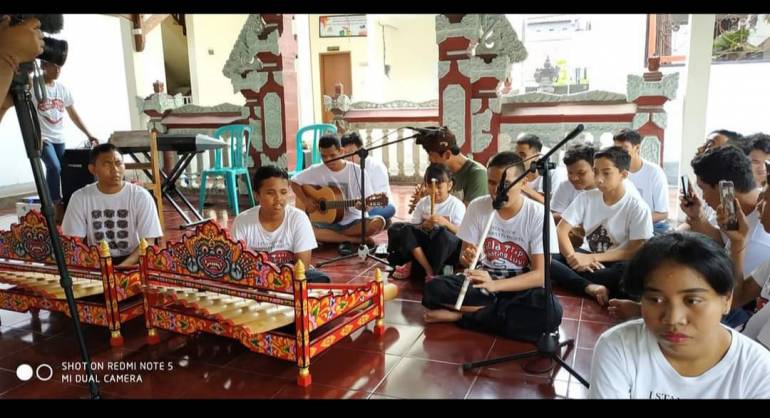
Dayu, through the accompaniment she gave to women in the village, learned that women should be independent, not dependent entirely on men. She and her team set up a cooperative for women farmers in the village to enjoy and use wisely the money from the harvest.
In 2010, Dayu worked in New Zealand for six months as a supervisor, accompanying 60 women from Bali who worked on a Kiwi plantation.
With a call to continue the foundation established by her late parents, Ida Ayu Putu Surayin and Ida Bagus Manthara, in 1957, she returned to Indonesia. She succeeded in administering the Dria Raba foundation-which had been vacuumed legally by Indonesian law.
The Dria Raba Education Foundation is a non-profit foundation whose vision is that every child has dignity and the right to education. The foundation was established for people with visual impairments both in Bali and outside Bali (West Nusa Tenggara and East Nusa Tenggara).
The purpose of establishing this foundation is to foster self-confidence in their students, develop talents and hobbies, reduce dependence on others, and fulfill their own needs from the skills they have.
“Around 40 children live and are assisted by Dria Raba, boys, and girls aged 7-20 years. They come from underprivileged families, and most of them suffer from total blindness, and some are partially blind,” explained Dayu to RVA News.
In addition to attending formal classes at the State Special Educational School pioneered by her late mother and several Balinese public figures, Dria Raba's children receive skills training programs after school such as singing, playing musical instruments, dancing, massage, computer programmer, and radio announcer training.
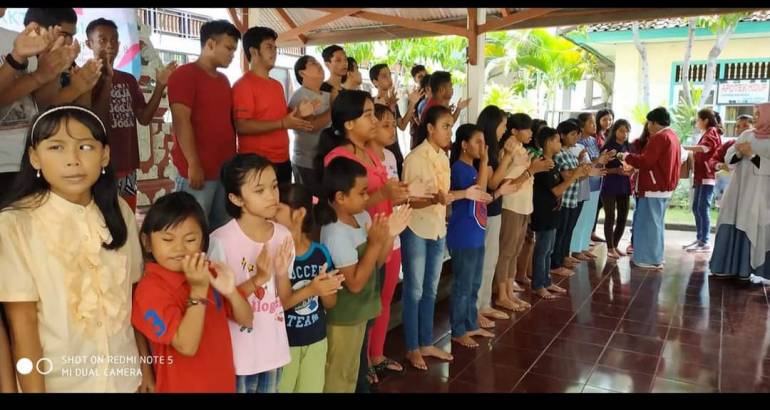
Starting from nothingness, Dayu revived Dria Raba, re-discovered sightless children in need of education from all over Bali, and looked for donors willing to help run Dria Raba. Dria Raba's donors come from the private sector and impermanent donors.
“God sent us good people so that we would not be left short. God always provides for us, and I believe that is because we sincerely serve these children,” she said when explaining the source of the foundation's funds.
Meanwhile, the most significant difficulty faced by this foundation is dealing with the parents. "The main problem we face is parents. Many parents are not aware of providing opportunities for their visually impaired children to study and join us," Dayu continued.
Various efforts have been made by the Dria Raba team, from personal approaches, family visits, and social educational awareness about the said impairment and the services provided by the foundation. Nevertheless, there are still parents who are unwilling and sincere to let their children pursue their education.
The parents’ lack of awareness for their children’s future, and the right of children to get an education so that later they can mingle with society, live socially, get a mate and be independent are still very negligible. Many parents are still ashamed to have children with visual impairments.
Being a woman who manages Dria Raba is one of Dayu's advantages. For her, with her nature as a woman, it is easier to approach the families of the children and the children who stay in Dria Raba.
“From my experience so far, I feel that it is easier to enter into children's lives because women are more sensitive and fathomable to children's situations. I was sometimes firm in accompanying them but did not forget my motherhood. I express love and care, mingle with them, play, tell jokes and listen,” explained Dayu. "I am here as a friend, mother, counselor, and also the chairperson of the foundation," she said further.
As the chairperson, Dayu had to manage public relationships with different sectors, including donors, the government, NGO partners in Bali, and the children’s families she cares for. She is grateful that she has never experienced gender-related issues as a woman during her time handling the foundation. Even a few people who know her are amazed and appreciated by what she does and her contribution to Balinese society.
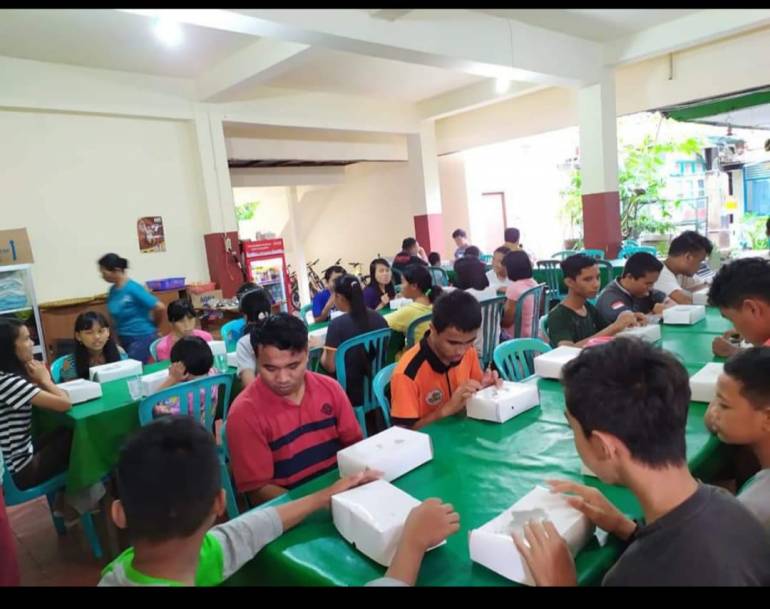
Dayu was born on May 10, 1960, was married in 1989 and has two sons who are currently married. She was formerly a Hindu. In the same year of her wedding year, she embraced the Catholic faith to follow her husband, who is now active as a lay minister at the Holy Spirit Parish Cathedral, Denpasar, Bali.
"It's not difficult for me to share time with my family and the foundation because the kids are grown up, and my husband understands what I'm doing, and sometimes he helps me too," said Dayu, who spends most of her time at the foundation.
Dayu and his team have a dream for Dria Raba. "I want to be able to have my place that is not integrated with this Special Educational School complex," explained Dayu. “A proper place for foundations and independence, where I also want to have preschool for those with visual impairment, because we often refuse children who come to us under seven years old as we don't have the facilities to educate them. I want to have a garden so that they can learn gardening and raise livestock and be independent,” she added.
Dayu hopes that she will be able to make her dream come true, and she wishes that there will be donors who are ready to work in partnership with her.
The Dria Raba foundation is currently located in the government Special Educational School complex. The foundation has ten staff involving social workers, assistants and operational personnel. All of them are volunteers and receive salaries in the form of necessities.
Radio Veritas Asia (RVA), a media platform of the Catholic Church, aims to share Christ. RVA started in 1969 as a continental Catholic radio station to serve Asian countries in their respective local language, thus earning the tag “the Voice of Asian Christianity.” Responding to the emerging context, RVA embraced media platforms to connect with the global Asian audience via its 21 language websites and various social media platforms.









